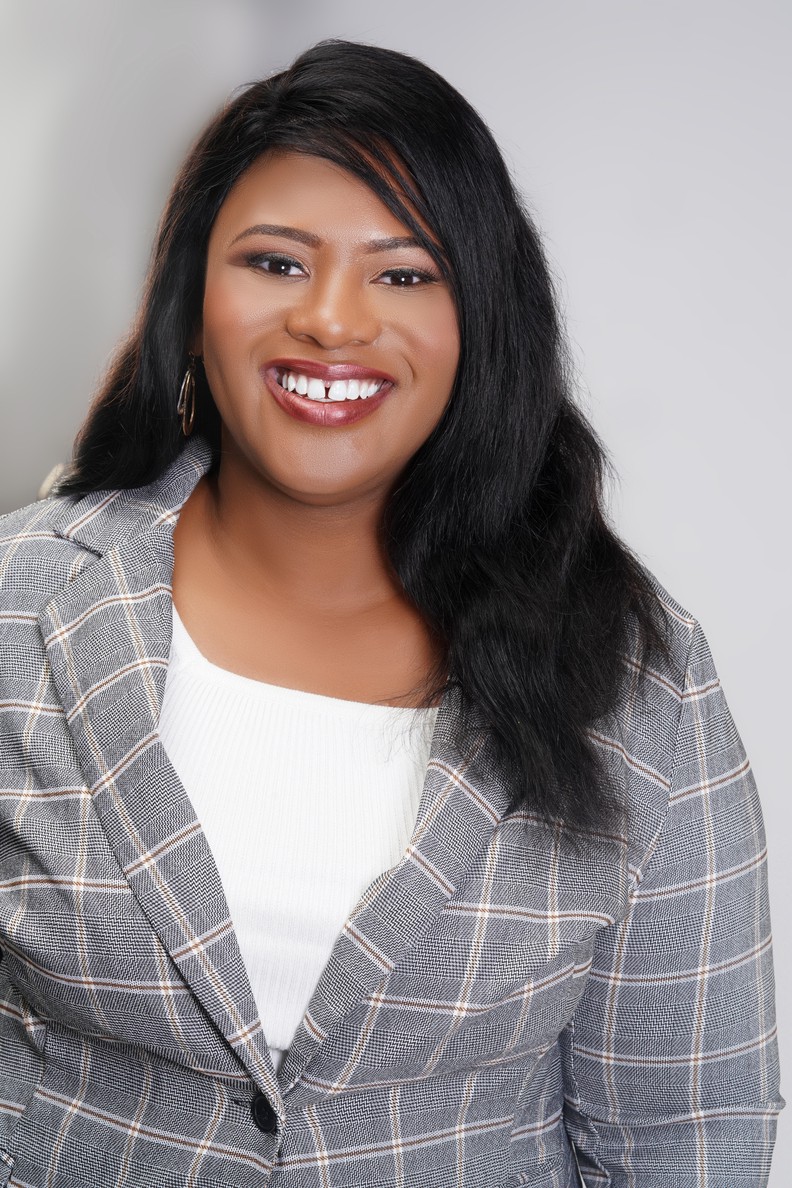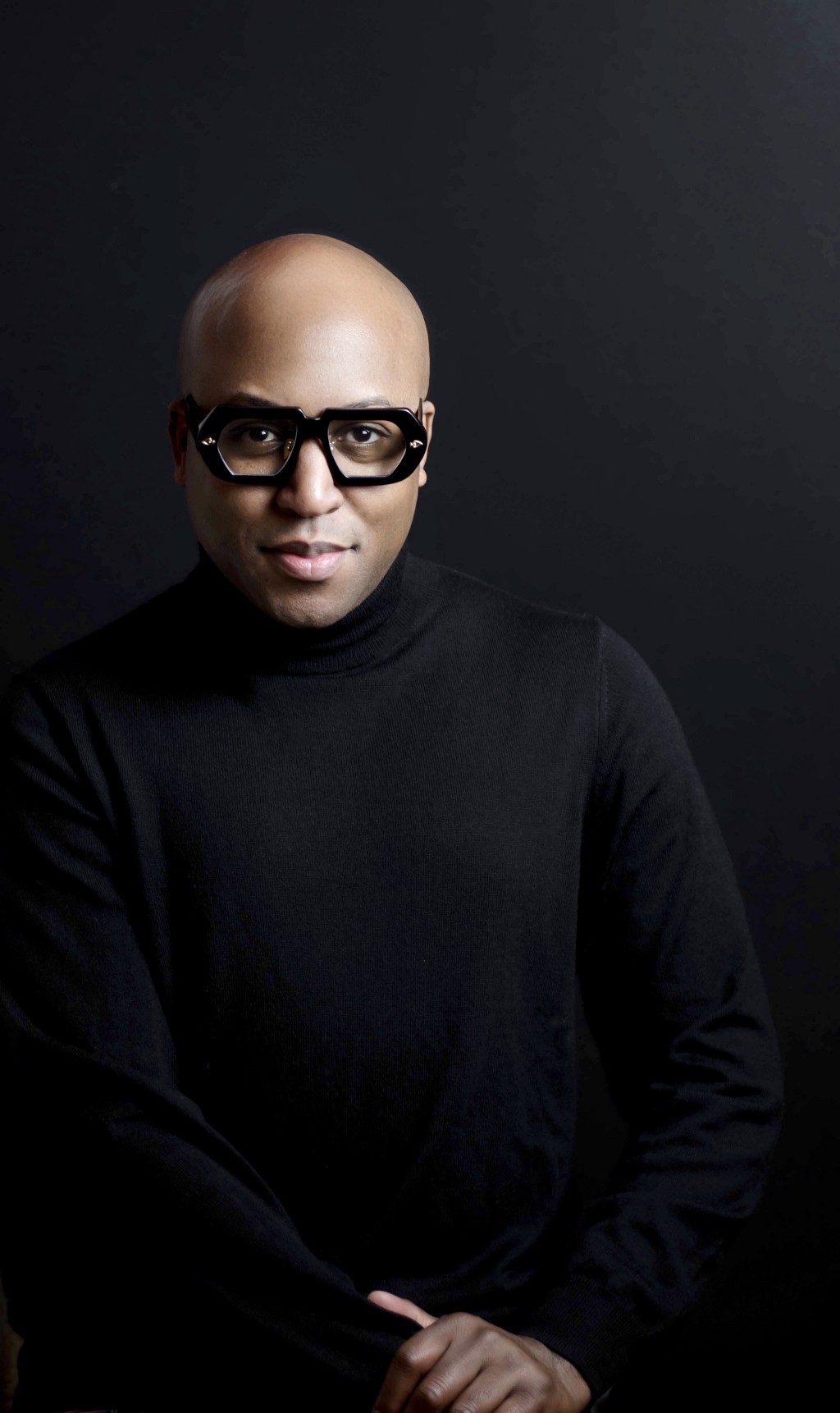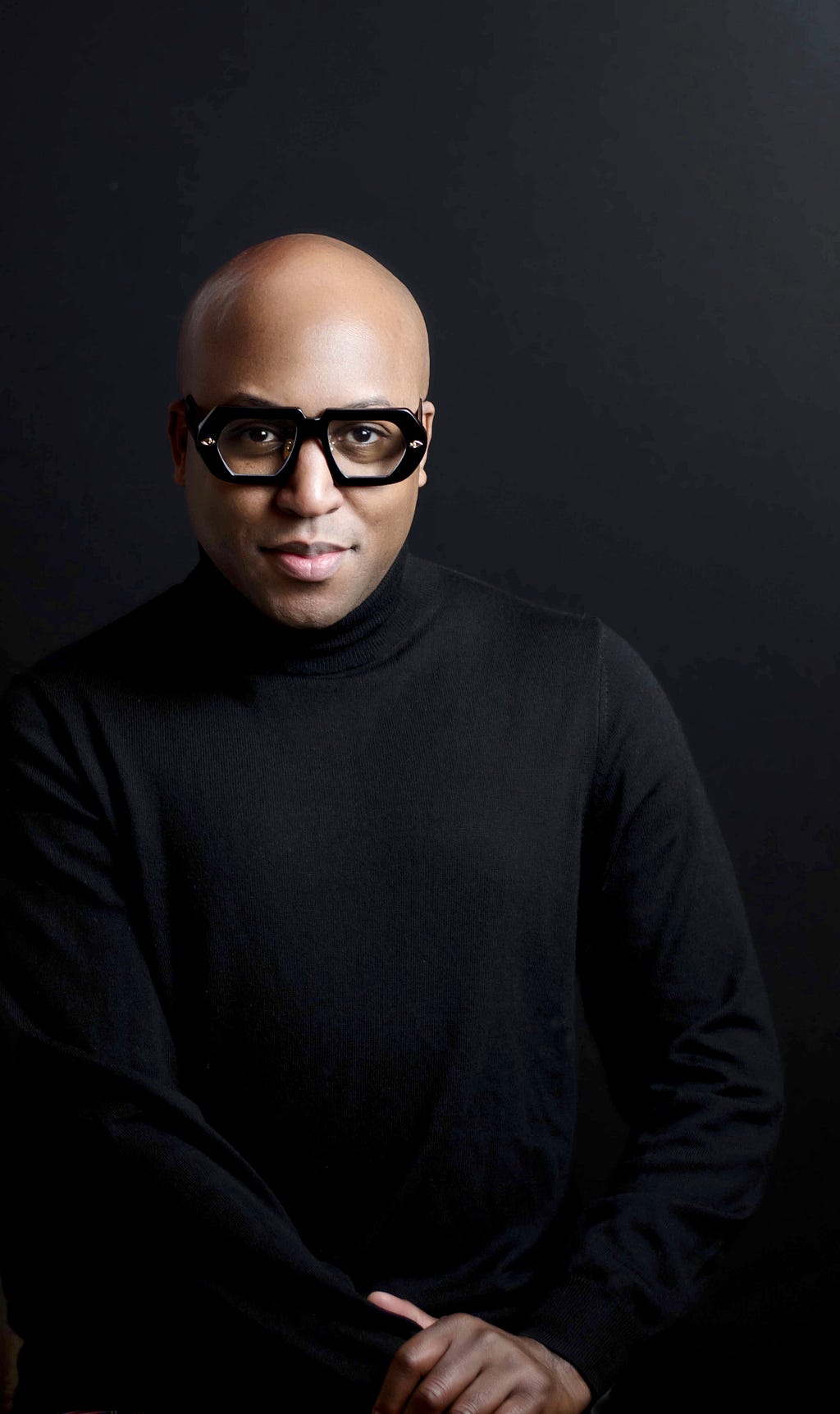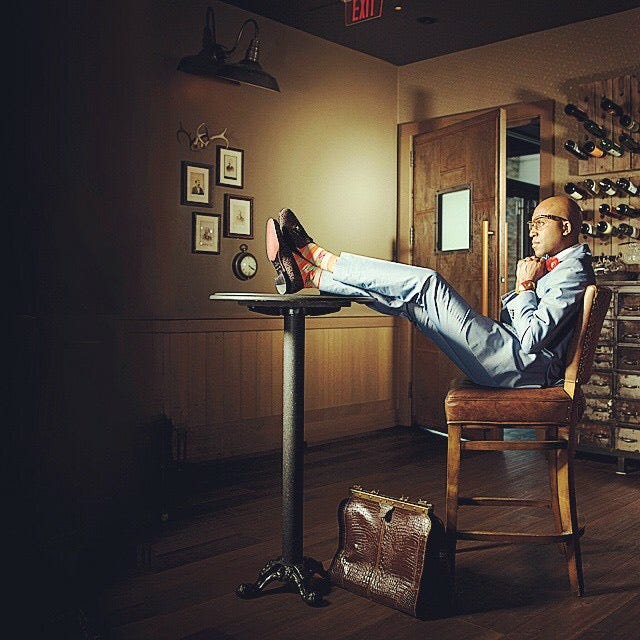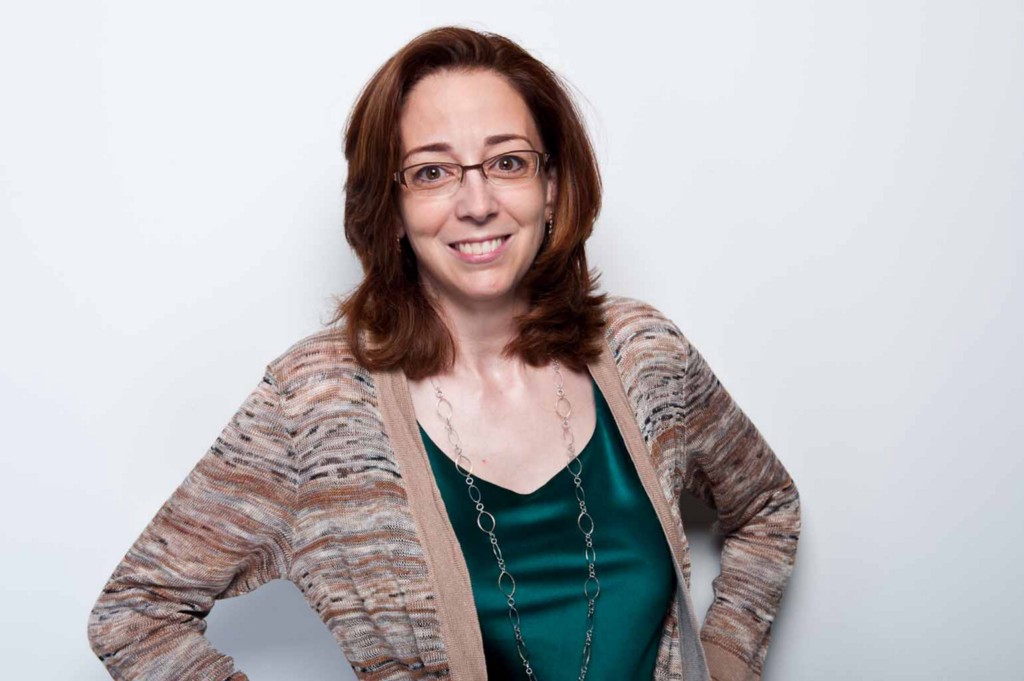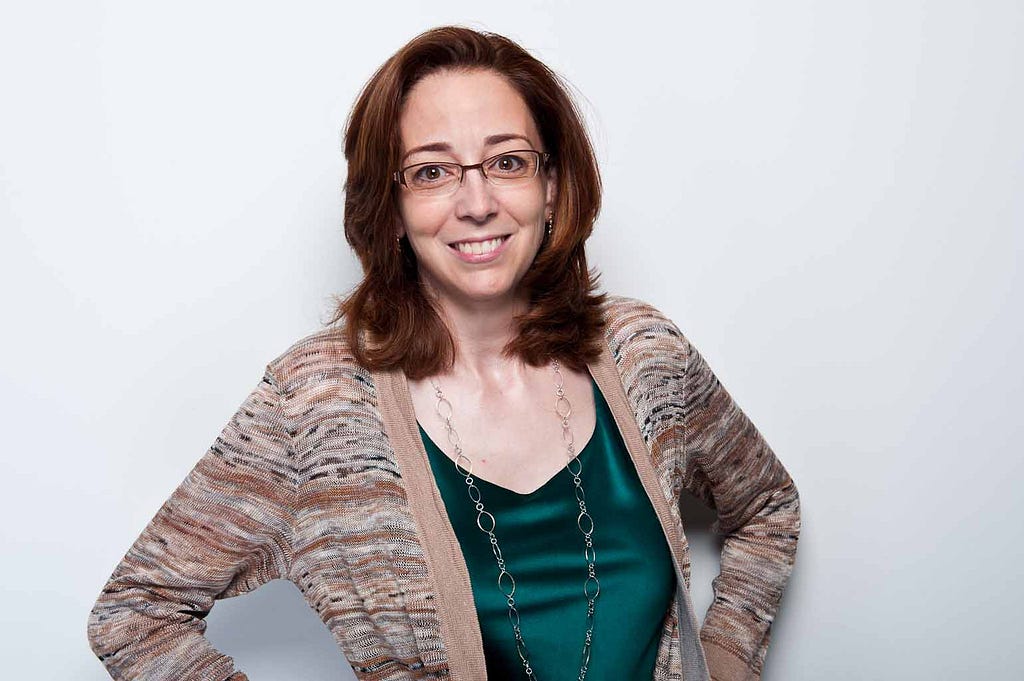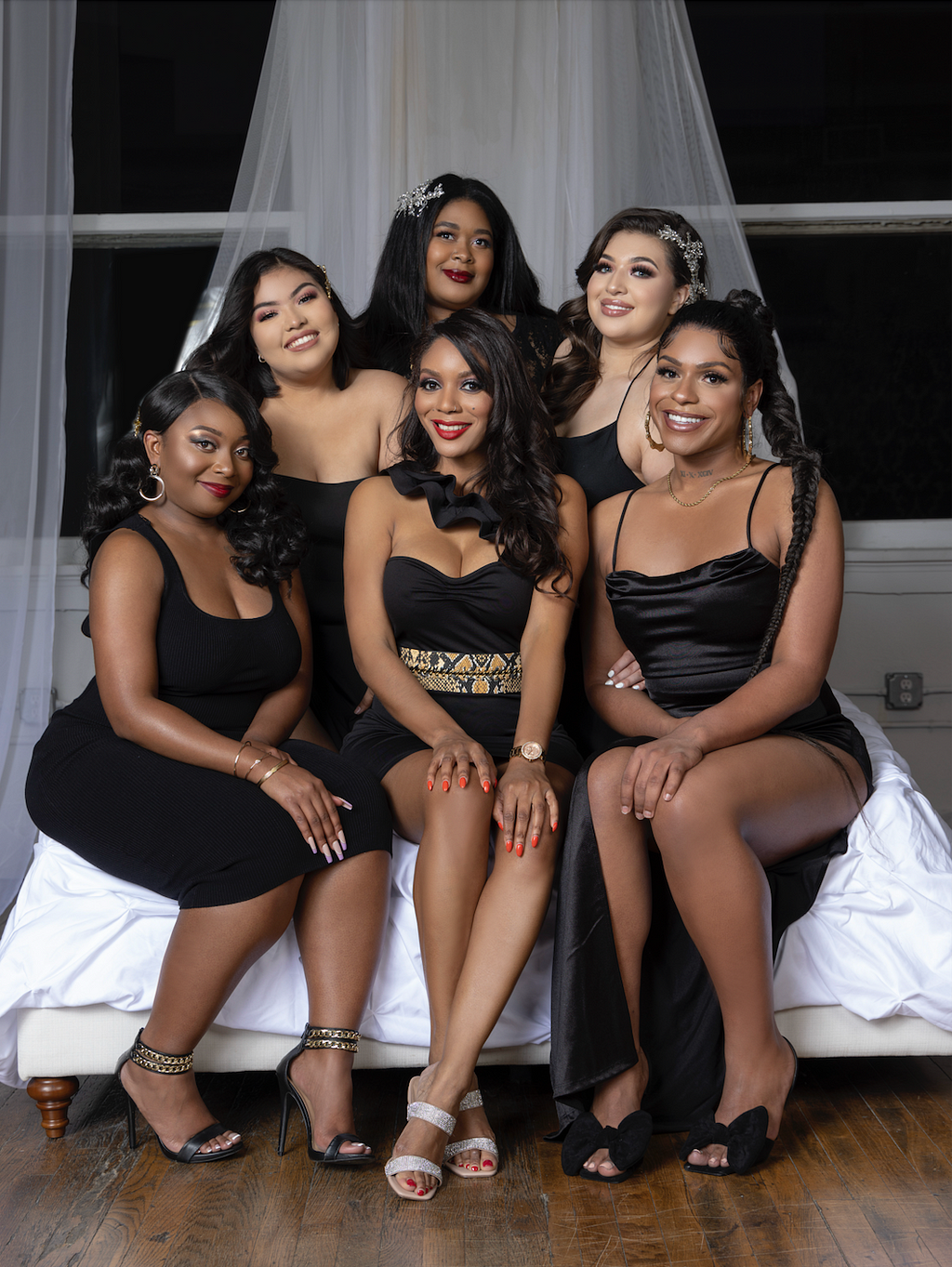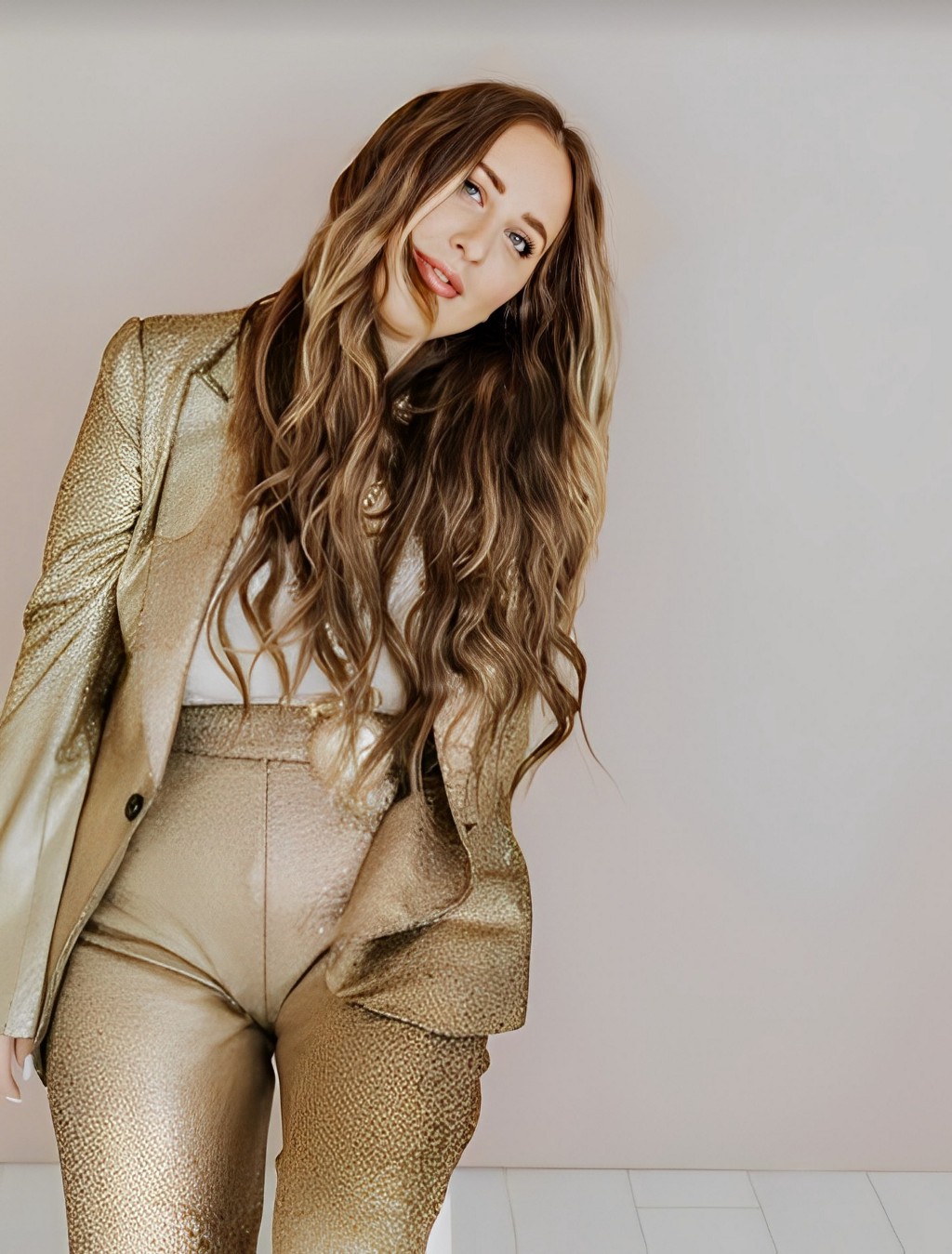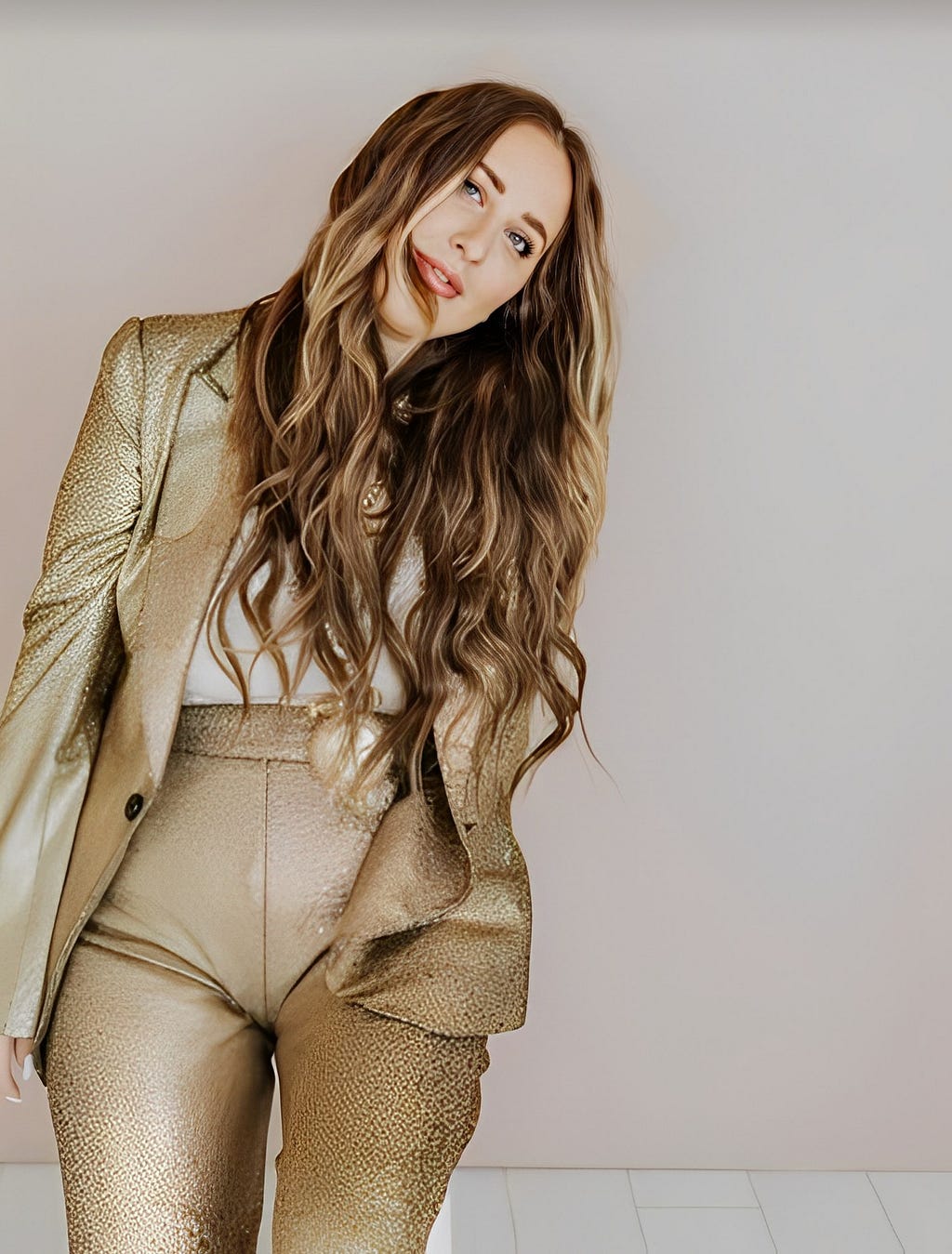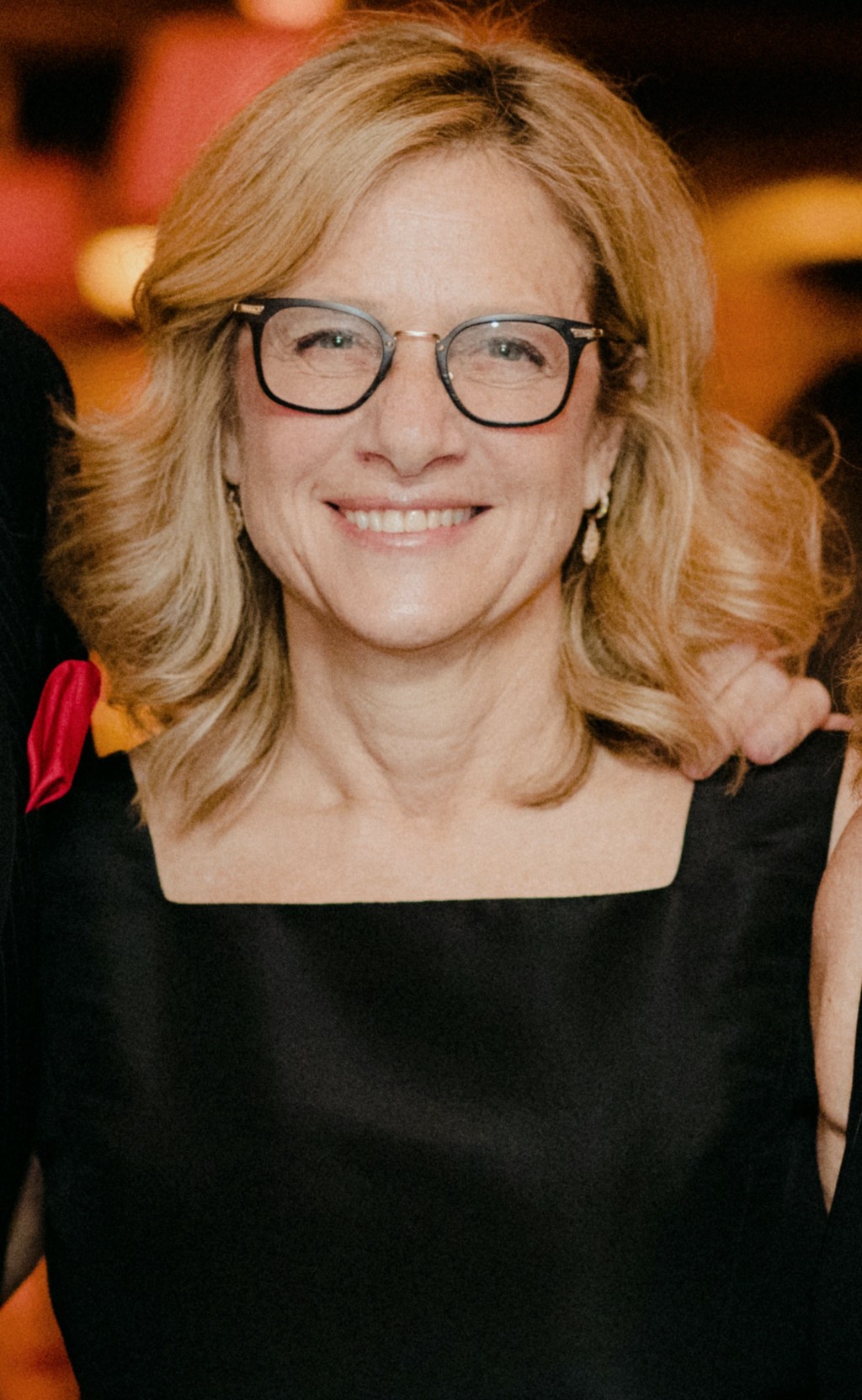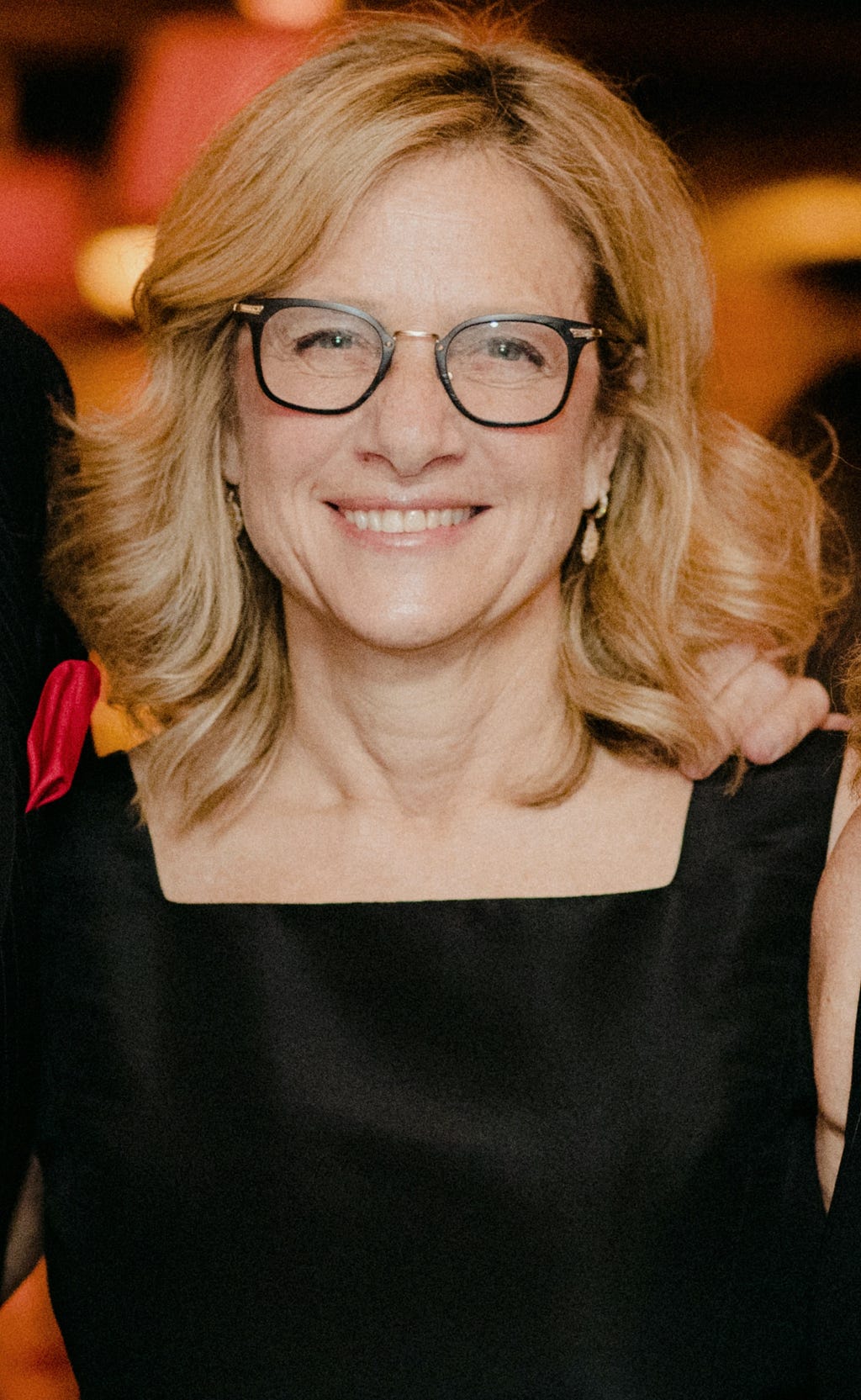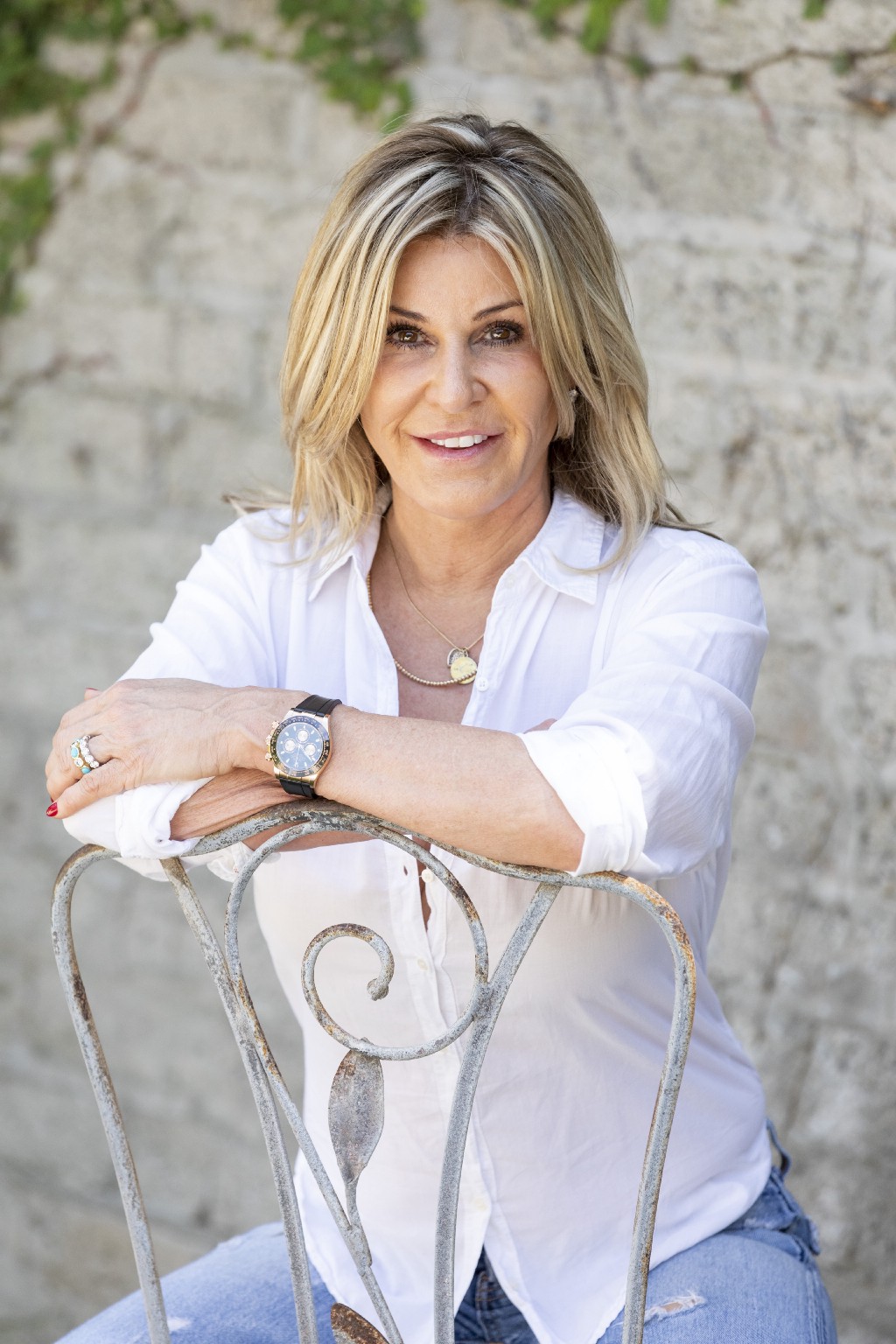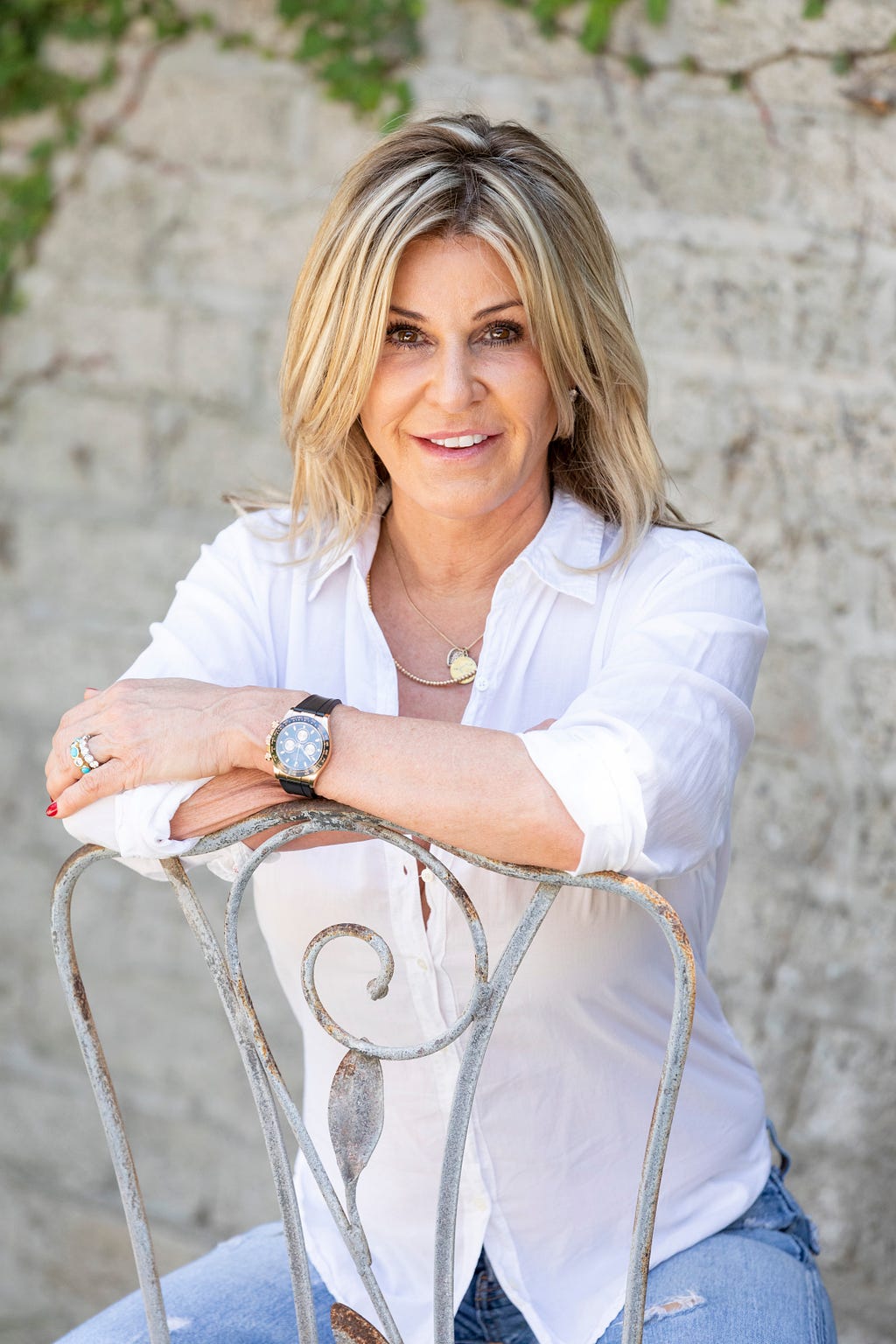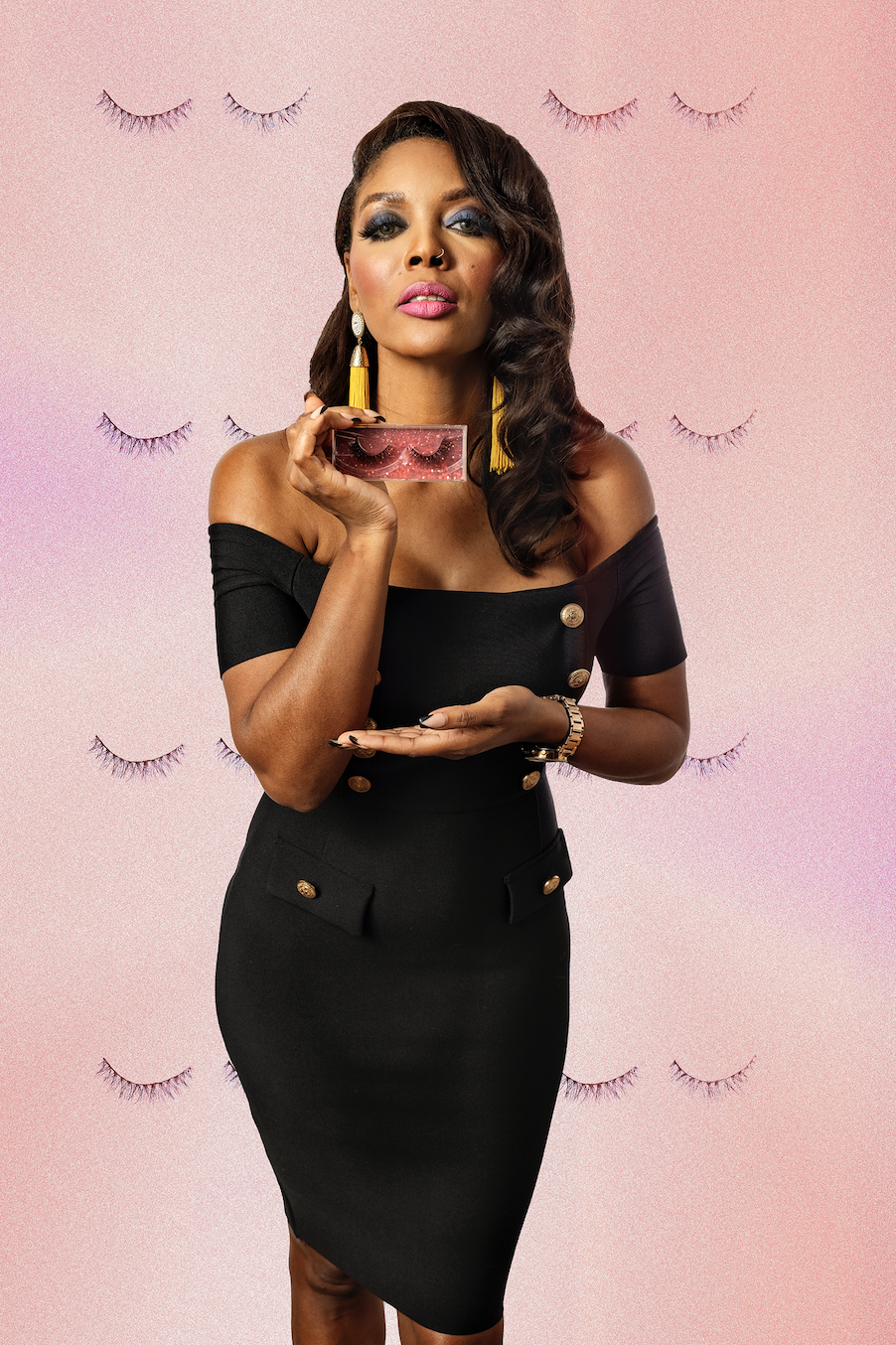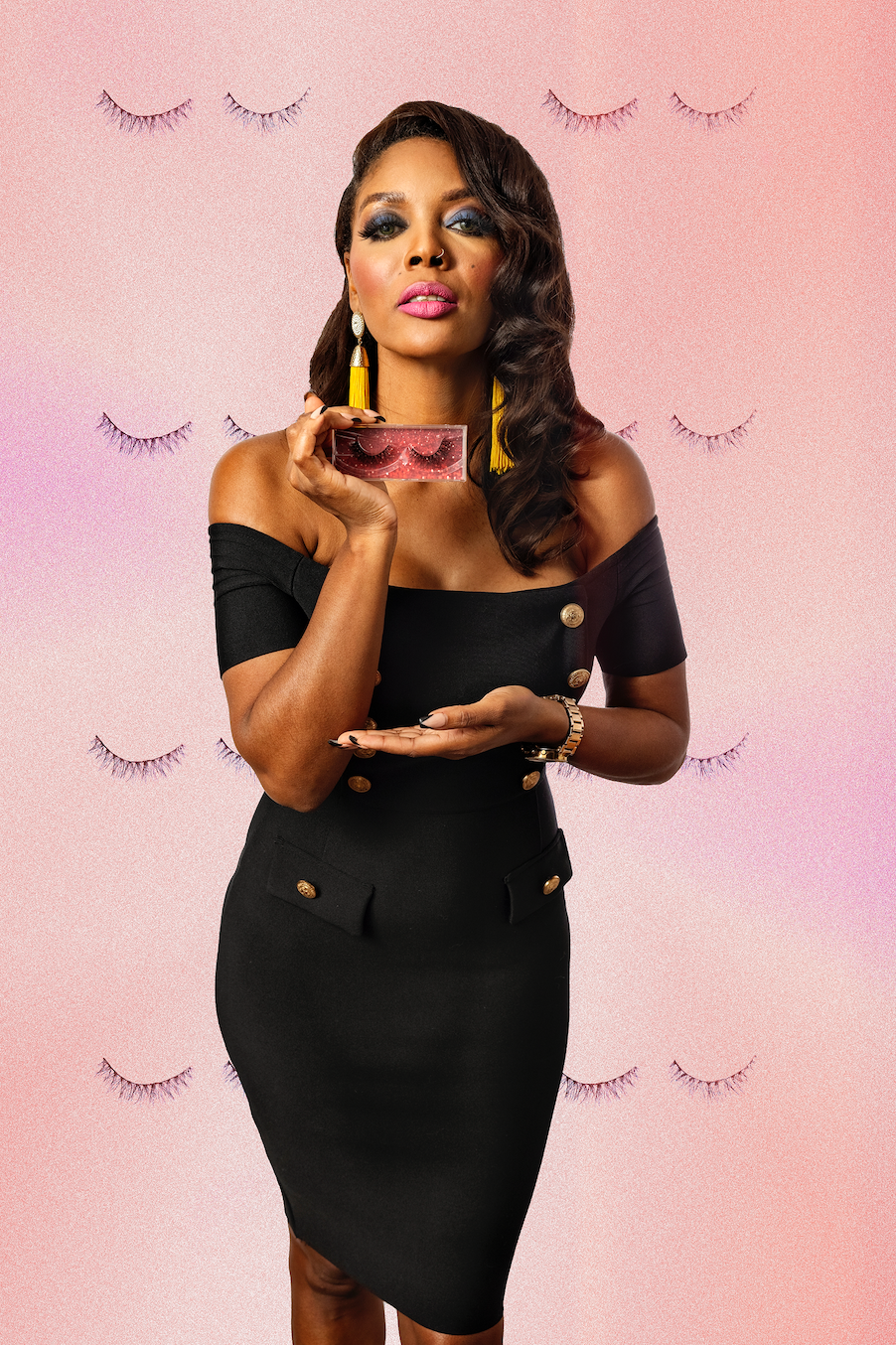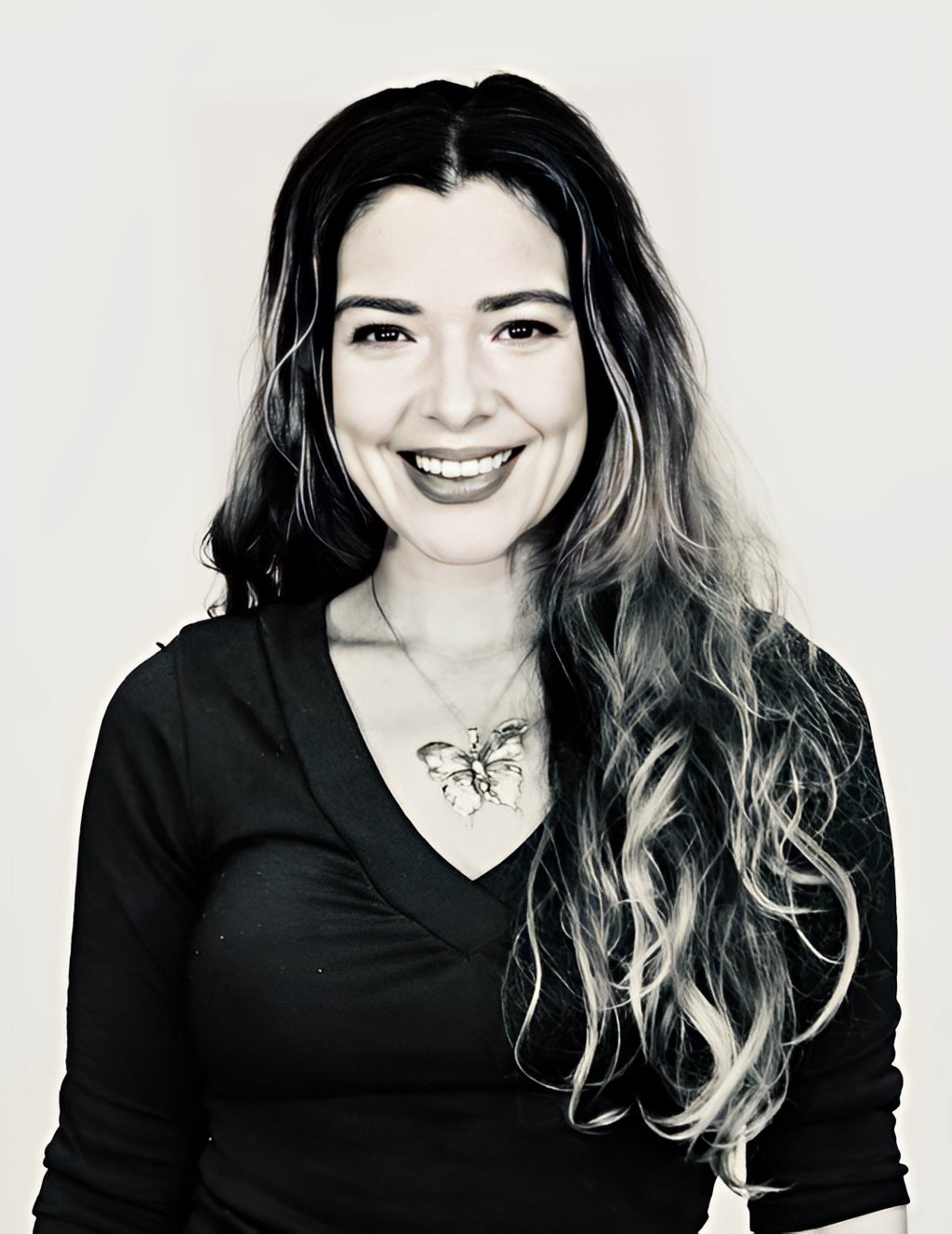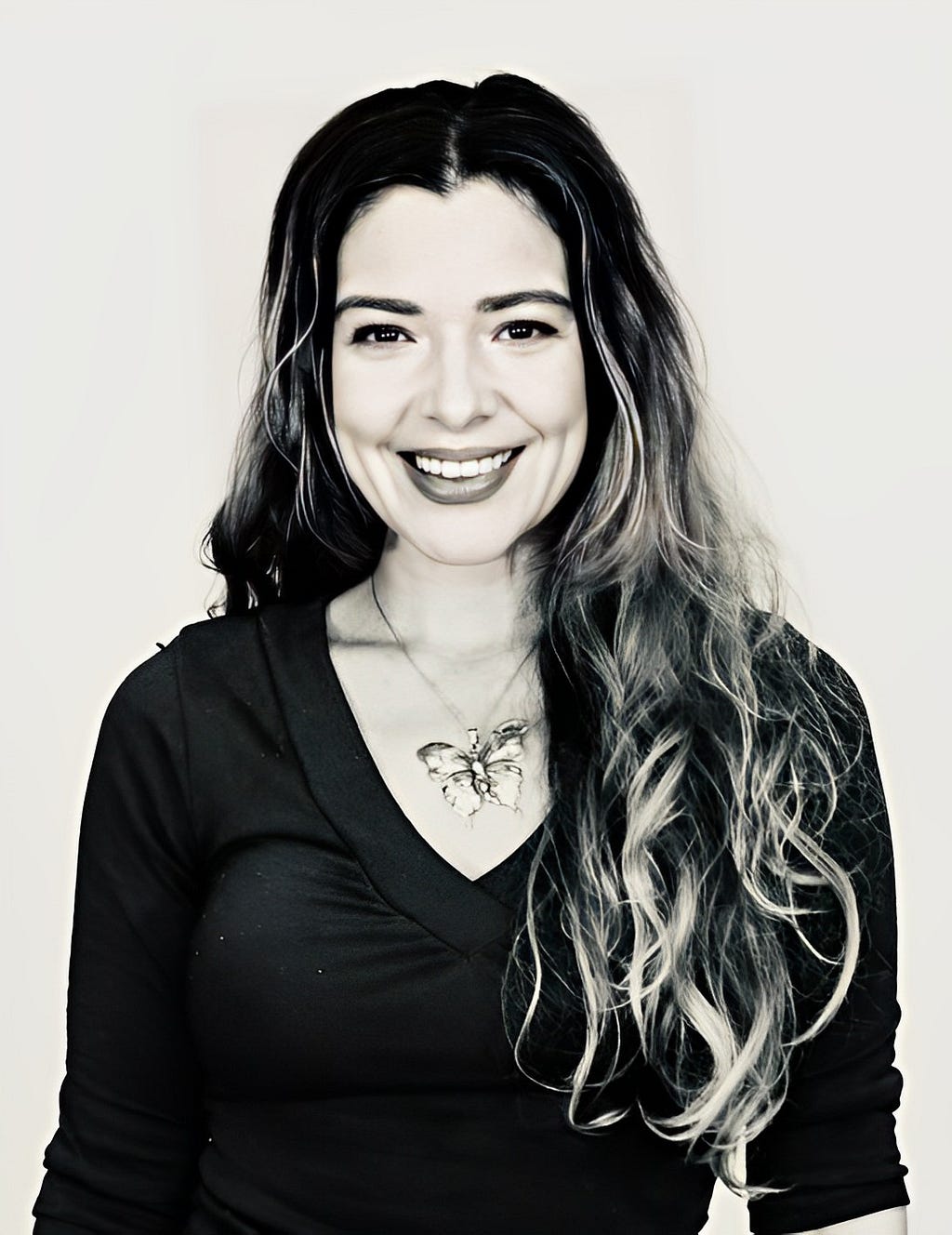An Interview With Candice Georgiadis
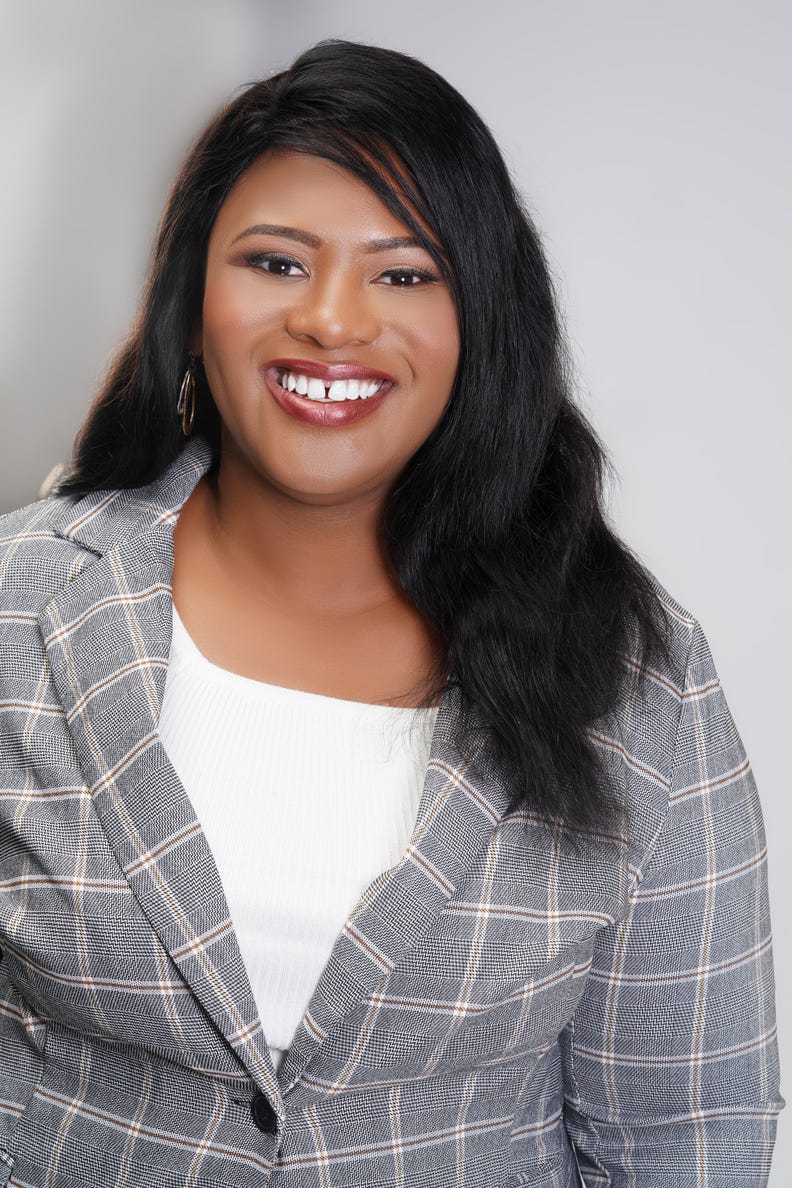
A great mindset is the first key to success. Without a great perspective, you are unable to be able to do anything in life. A positive outlook on life will create a different experience than someone with a negative attitude. I remember working with a client who was having a rough day, so we used our time together to discuss all the positive things she had in her life. By the end of the call, her whole perspective had changed, and she emailed me at the end of the week to share that she had closed her largest client ever that week!
How does a successful, strong, and powerful woman navigate work, employee relationships, love, and life in a world that still feels uncomfortable with strong women? In this interview series, called “Power Women” we are talking to accomplished women leaders who share their stories and experiences navigating work, love and life as a powerful woman.
As a part of this series, I had the distinct pleasure of interviewing Janelle Jones.
Janelle Jones has the zeal and passion for growing brands and helping them surpass the standard they strive to achieve. Her goal is to help women create the life of their dreams through entrepreneurship. She is an author, podcast host, entrepreneur, and homeschooling mother of two.
Thank you so much for doing this with us! Before we dig in, our readers would like to get to know you a bit more. Can you tell us a bit about your childhood “backstory”?
I was born in New York City as a first-generation American. Both my parents and immigrants from England. My parents divorced when I was ten, and I moved with my mother to Atlanta. I am the oldest child of 5 children. I am the last of the latchkey kids, so I was responsible for myself from a young age. I was a very educated child, so when it was time to go to college, I knew there was no other choice. While in college, I worked three jobs and started a tutoring agency.
Can you tell us the story about what led you to this particular career path?
I was in my 20s, and I was dying. I was sick every day for months with a heavy menstrual cycle that lasted for three months. My symptoms were so severe that they gave me several stress tests with inconclusive results. So I decided to quit my job. I decided to become an entrepreneur because I worked an American corporate job. Before I quit my job, I realized I had to do something to make money. And I started a tutoring agency while I was on medical leave. Once I could replace the income from my corporate job with my tutoring company, I knew it was time to quit. I decided to take this career path because my life depended on it, and I never went back.
Can you share the most interesting story that happened to you since you began your career?
At the beginning of my entrepreneurship journey, I signed up for a business retreat in Bali because I had ended a failed relationship. I wanted to get a change of scenery and some time away from my ex. While on this retreat, I decided to start my online business and become a digital nomad during that trip. During this trip, I decided to start my journey around the world, and for two years, I went to 12 different countries. While traveling, I created and built a virtual assistant side hustle brand called Hustling Hotties. If I hadn’t taken the trip and met the people I did, I might not be where I am today.
You are a successful business leader. Which three character traits do you think were most instrumental to your success? Can you please share a story or example for each?
The three characteristics of a successful business leader are grit, bravery, and consistency. Grit is an essential characteristic because you have to be able to stick things out. You’ve got to be able to make rough decisions. You’ve got to be able to go after and want your dreams for bravery. This being in this business, you have to be fearless. You have to take chances, know that you’ll learn from your mistakes, and be bold when doing this. So all of this contributes to being brave and then being consistent. So many people stop after a year of failure. They need to continue to make they improve their band, learn from their mistakes, and go after what they want. They change their business. They decide to get a job. And there’s nothing wrong with having a job. But while working your job, consider your job as an investor in your business. Take a percentage of your income and invest in your dreams. Consider this an investment in yourself, and be consistent with the process. If you focus on investing in your business, you will be able to make your dreams a reality. Stay consistent with posting on social media, building your brand, and sharing your mission. Consistency is one of the many keys to success.
Okay, thank you for that. Let’s now jump to the primary focus of our interview. The premise of this series assumes that our society still feels uncomfortable with strong women. Why do you think this is so?
Society fears strong women because they know we can make the change we desperately need in this world. A woman in power will not only change her life, but she will also change the lives of her family, her community, and the world. She is a role model many will inspire to be just like, and having a positive role model can be life-changing for many young women.
Without saying any names, can you share a story from your own experience that illustrates this idea?
I was running a political campaign for a political candidate. She had tried to win her race several times before, and she kept telling me that people who were supposed to be helping her were sabotaging her. At first, I didn’t believe her because it was so crucial for her to be able to win this seat for everyone. So I called the people she was telling me were not helping her, and they said to me that they refused to help her. She wouldn’t do things the way they wanted them done, which did not make them happy.
My client was a powerful, determined, and motivated woman. These people feared she would win because they feared her strength and ability. She had big plans to change everything, and the changes she had planned affected their ideas. People are scared of the change that a strong woman can make. A powerful woman changes anything that she touches.
What should a powerful woman do in a context where she feels that people are uneasy around her?
If people are uneasy around a powerful woman, she should continue doing what she’s doing. A mindset shift needs to happen for people to realize that this woman is not here to bring them down. This woman is not here to all outshine you. This woman is here to be her best self and in her being her best self. It allows what she’s working towards to improve. It will enable society to improve. It provides for an open-mindedness that does not exist right now. It is a complete change that is possible. For the shift to start, she needs to know that she’s the Ruby Bridges of this situation. She is a changemaker for herself and the women who will come after her. She will change how people perceive what she is doing, who she is, and how society sees her type of woman.
What do we need to do as a society to change the unease around powerful women?
We need to change our mindset to change the unease around powerful women. We need to realize that women are more than domestic workers. We need to recognize that women are more than just mothers, and we are more than just the crutch of society. We must learn that women should have a say about what happens to them and the community they live in because anything that affects a woman affects the children. Anything involving the family affects the community, affecting the world. So we need to realize that women’s voices are powerful beyond measure. Society needs to change its framing around gender roles and the lack of support of strong women and women in leadership.
In my own experience, I have observed that often women have to endure ridiculous or uncomfortable situations to achieve the success that men don’t have to endure. Do you have a story like this from your own experience? Can you share it with us?
I worked in a corporate environment as a contractor and had to wear certain clothes. Since I was in a very professional position and wearing clothes that matched the job. A management representative told me that if I wore a skirt, the skirt would have to be beneath my knees, and I would have to wear pantyhose so that the men didn’t get the wrong impression. I have never heard of a job telling a man what he has to wear to work. As a professional adult, it is very degrading to be told what to wear and what is and isn’t appropriate so that it doesn’t stimulate another person.
In a professional environment, women are objectified, and their clothes are looked at to see if they are sexual or feel too revealing. Men are allowed to wear what they want and do what they want, and a woman has to walk precariously in a work environment to ensure that she looks the part, talks a certain way, and acts a certain way, and that’s not right. I don’t think that’s something men have to deal with at any point.
In your opinion, what are the biggest challenges women leaders face that aren’t typically faced by their male counterparts?
Women constantly have to ensure that they are not over-sexualized, which means they have to wear a particular type of clothing. They have to walk a certain way, can’t show their shape, and can’t look a certain way. Women have to dumb themselves down in the way that they look and the way that they speak in the way that they talk in their education level. They have to bring themselves down to a place where they are almost considered dumb compared to their male counterparts to make sure that they fit in and make sure that they can achieve a small percentage of what their male counterparts can achieve.
Let’s now shift our discussion in a slightly different direction. This is a question that nearly everyone with a job has to contend with. Was it difficult to fit your personal and family life into your business and career? For the benefit of our readers, can you articulate precisely what the struggle was?
I am a big planner. When I decided to start my family, I started planning about five years before. That means I put documents in place, opened a new bank account, and organized my finances. I took some mental health time to get my mental state together. I also got my business in order and started hiring people. Hiring allowed me to begin delegating tasks so that it was a smooth transition by the time I had to take my maternity leave.
Going through this process before having kids made the transition nearly seamless. I ensured that my children were incorporated into my current life and not the other way around. I’m a big believer that we should have it all with a balance by managing our expectations. When considering work and personal, one should benefit the other and vice versa. So my biggest struggle was ensuring that organization was a priority so that it was a smooth transition from being a single woman to a mother and wife. I have, for the most part, been able to do that. If I feel like I am struggling at any point, I must remind myself to give myself grace in the process.
What was a tipping point that helped you achieve a greater balance or greater equilibrium between your work life and personal life? What did you do to reach this equilibrium?
At one point in my career, I got very sick. I realized that I was doing too much. I had stopped delegating tasks and was doing too much work. I was ultimately out of balance with everything. There wasn’t enough me in my life. I had to put myself first, and everything else had to go on the back burner. I took a good step away to see where the problem lay in my life, work, and personal life, and then removed the things that were completely unnecessary to find the balance I needed. I also went back to practicing grace. So if something doesn’t get done, then that’s okay. If it doesn’t get done perfectly, that’s okay too. So many of us, including myself, deal with perfectionism. We must know that life and work will continue if it is not perfect. So that’s how I found balance in my work and life.
I work in the beauty tech industry, so I am very interested to hear your philosophy or perspective on beauty. In your role as a powerful woman and leader, how much of an emphasis do you place on your appearance? Do you see beauty as something that is superficial, or is it something that has inherent value for a leader in a public context? Can you explain what you mean?
Beauty is an event and a very unusual topic for me simply because I am such a homebody. Everything I do is on the computer, so your appearance must look good from the neck up. But as you build a brand and a persona, people buy into beauty and luxury, depending on your brand. They buy into the experience they get from dealing with you and your brand. People love to live vicariously through someone else. So if something looks beautiful or luxurious, people are more than likely to buy from you. Whereas if you look frumpy if you’re not put together, they don’t want what you have to sell because they are already frumpy and not put together. So they want to feel like they’re buying into something that will improve their lives.
Beauty and self-care are things that I constantly work on daily. Putting myself together daily by wearing clothes that make me look good and putting on my makeup to ensure that I feel like myself every day. There has to be a balance so it feels normal and I am not overdoing it. My daily goal is to feel and look excellent and have a positive outlook on life.
How is this similar or different for men?
It’s similar and different for men. If they were selling something, you would want to buy from the handsome, rugged, tall, dark, and attractive man. Typically people don’t want to buy from the nerdy, dirty bummy looking man, but to that same extent, men can sell anything. They have that unique ability, or maybe society has created it where men can sell you something, and they don’t necessarily have to be so put together. They don’t have to go above and beyond the way a woman typically does. A woman has to ensure that her clothes look nice, her hair looks a certain way, and her makeup is flawless. Men must ensure they have showered, can walk out the door, and do anything they want.
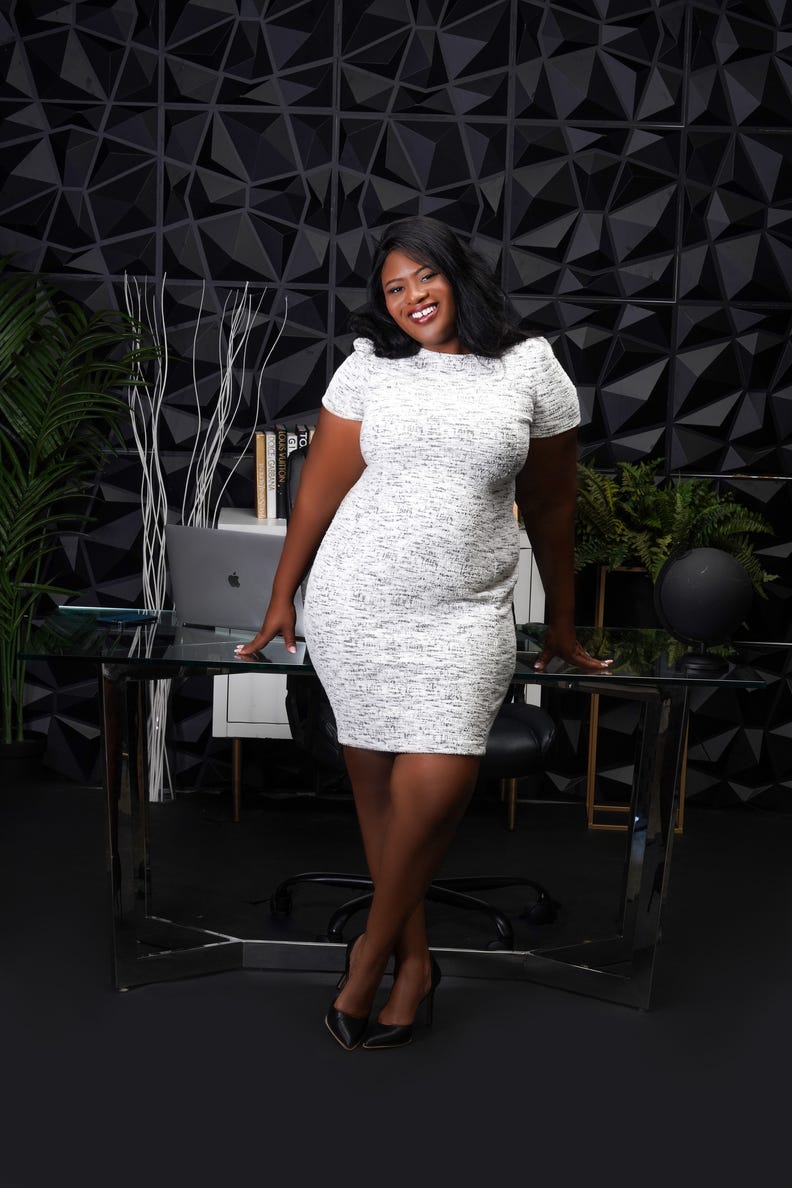
Okay super. Here is the main question of our interview. Based on your opinion and experience, what are the “Five Things You Need To Thrive and Succeed as a Powerful Woman?” (Please share a story or example for each.)
Women need many things to thrive and survive, but five things they must have are a great mindset, consistency, grace, a mentor, and a supportive team.
A great mindset is the first key to success. Without a great perspective, you are unable to be able to do anything in life. A positive outlook on life will create a different experience than someone with a negative attitude. I remember working with a client who was having a rough day, so we used our time together to discuss all the positive things she had in her life. By the end of the call, her whole perspective had changed, and she emailed me at the end of the week to share that she had closed her largest client ever that week!
The second thing is that you need you to have to be consistent. That means creating a consistent schedule, creating a defined brand, and being a constant person when relating to others. If somebody expects something from you, that’s what they’re going to get consistently. I began to send emails to potential and existing clients weekly, and the feedback was outstanding. People enjoyed what I shared in the emails and began to look forward to reading them. Consistency in doing anything is better than doing nothing, even if it’s not perfect.
Another thing you will need if you’re a powerful woman is the ability to give yourself grace. Knowing that you’re not going to get everything done perfectly and being able to accept that is a great accomplishment. I was writing a book, and it took me twice as long as I expected to write it. When I completed it, the book received rave reviews, and it met the anticipation for it to come out. You are not here to save the world, but you can make a change in it. So giving yourself that grace to do what you can and leave the rest will make you so powerful.
Having a mentor is a must-have to be successful. A good mentor will show you that you can have it all. There is such a thing as a work-life balance, and a good mentor will show you how to achieve it. You can have a family, a partner, a career, and time for yourself. I was mentoring a client who was overwhelmed and needed help figuring out her schedule. I helped her find more time in her day, giving her the balance she needed. You can have everything you want if you manage your expectations of how that looks and will work. A mentor will help you to figure that out.
The fifth thing to thrive and succeed as a mighty woman is a fantastic team. We cannot do everything by ourselves, so having a solid team will be essential if you want to achieve your goals in life. Getting a solid team behind you will be the make-or-break factor in your life. Once I hired one person, I could triple my profit which not only covered their fees but I was also able to hire someone else. I was doing everything myself and began to burn out.
To be a thriving and successful businesswoman takes a lot of hard work, grit, and bravery, and to keep going, we have to have a great mindset, be consistent, give ourselves grace, find a mentor, and hire a supportive team.
We are very blessed that some very prominent names in Business, VC funding, Sports, and Entertainment read this column. Is there a person in the world or the US with whom you would love to have a private breakfast or lunch, and why? He or she might just see this if we tag them.
I would love to have a private meal with Oprah Winfrey. Ms. Winfery is an absolute powerhouse and is this century’s quintessential, powerful woman. I love her rags-to-riches story and that she is a philanthropist. And she can change the world, and she has. So I would love to sit down and have a pleasant conversation with Oprah.
Thank you for these fantastic insights. We greatly appreciate the time you spent on this.
Power Women: Janelle Jones On How To Successfully Navigate Work, Love and Life As A Powerful Woman was originally published in Authority Magazine on Medium, where people are continuing the conversation by highlighting and responding to this story.


